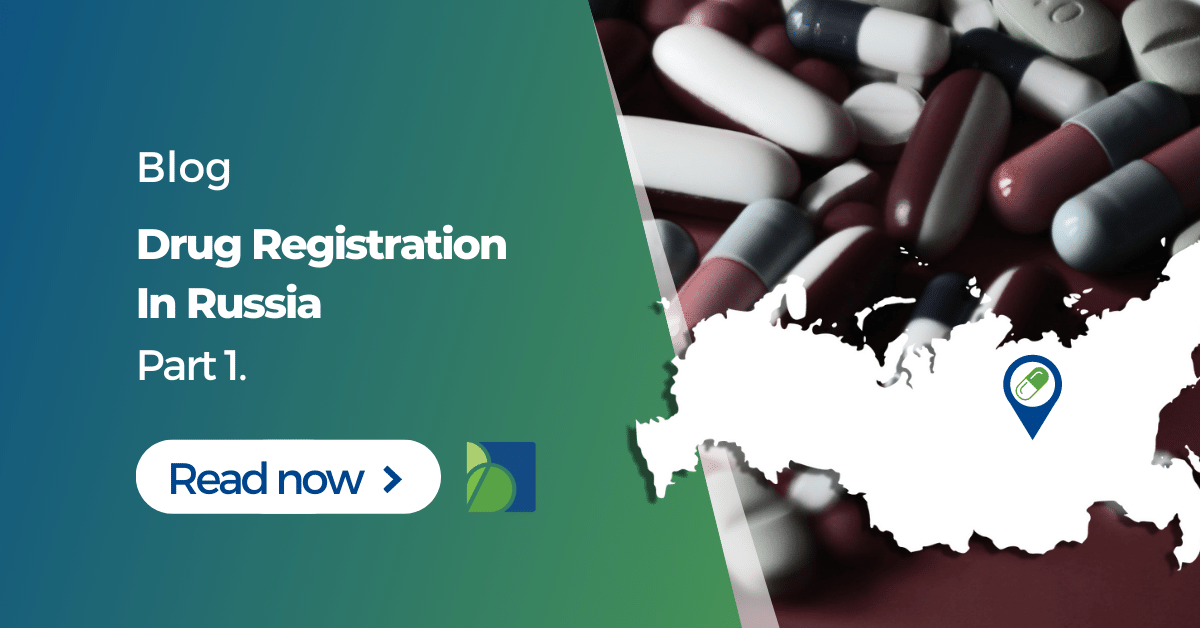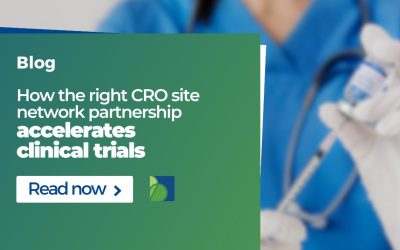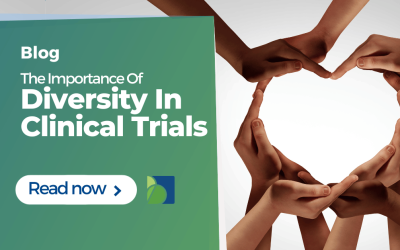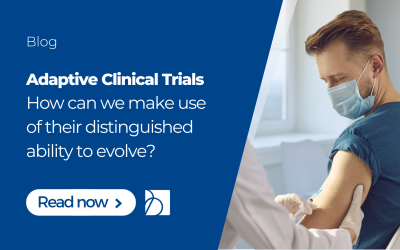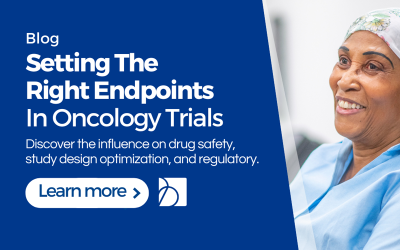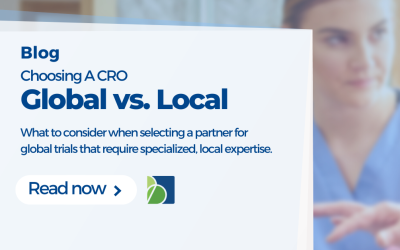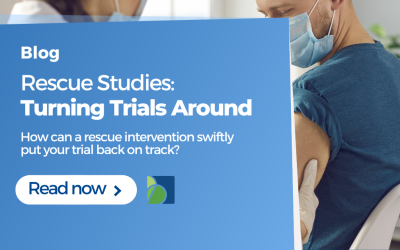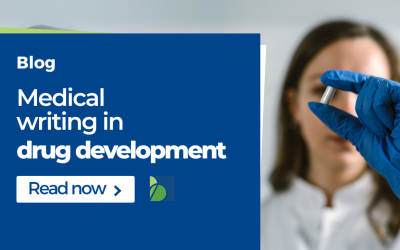Overview of drug registration in Russia
The Russian pharmaceutical industry is expected to exceed two trillion Russian rubles in 2020, representing a roughly 10% growth over the previous year. Pharmaceutical revenues are expected to reach 2.35 trillion Russian rubles by 2023. It’s also worth noting that permission times are among the quickest in the globe (Statista). However, bear in mind that Russian pharmaceutical law is not always in sync with international standards. This is the first of two blogs on drug registration in Russia, and it focuses on:
- Regulatory Authorities
- Good Manufacturing Practices in Russia
- Non-clinical Studies
- Running Local Clinical Trials in Russia
- Clinical Trials Application in Russia
Previous legislation was mandated by the Federal law on the distribution of medical goods, passed in 2010. However, sice the end of 2020, the national authorization process would no longer be in force. As a result, there are few legislative and regulatory provisions. Furthermore, regulatory rules in the pharmaceutical industry often duplicate but do not evolve legislative laws. Thus such regulatory clauses may be regarded as superfluous. Again, pharmaceutical law differs from other types of healthcare product legislation, such as medical device or cosmetics rules. Many contentious elements are included in the law. However, they are not applied or enforced. For instance, legal definitions of bioequivalence studies or generics, for example, are not followed, and human and veterinary requirements are merged in one legislation.
Who are the authorities for Marketing Approval
In comparison to other countries and areas, the Russian regulation framework for healthcare items is fairly fragmented. At least four distinct competent authorities are involved in drug registration in Russia.
Russian Ministry of Health
The Russian Ministry of Health is responsible for granting marketing authorization, clinical trial applications, and price control over certain medicinal products included in the Russian Essential Medicines List. In addition, the Ministry of Health has has a specific government institution; the FGBU. This institution assesses marketing authorization application dossiers and other types of dossiers such as clinical trial application dossiers, variation, or renewal dossiers.
Russian Ministry of Industry and Trade
The second government agency important for regulating medicinal products for human use is the Ministry of Industry and Trade. This institution is responsible for issuing manufacturers’ authorizations for local establishments and GMP certification of manufacturing facilities in Russia and abroad.
Roszdravnadzor
The next crucial regulatory player is Roszdravnadzor, the Russian abbreviation for the Federal Agency for Healthcare and Social Development Supervision. This institution:
- overseas pharmacovigilance of human pharmaceuticals
- carries out the GCP inspections
- conducts GLP inspections (limited to human drugs)
- is responsible for official batch release testing
Federal Antitrust Service
The Federal Antitrust Service completes the list of Russia’s principal regulators of human drugs. It regulates pharmaceutical advertising in foreign markets and sets prices for medications on the Russian Essential Medicines List. Additionally, it plays a crucial part in the decision-making process associated with the development of new pharmaceutical legislation.
Good Manufacturing Practices in Russia
GMP accreditation is a significant concern for foreign pharmaceutical companies. To apply for a marketing authorization in Russia, you must possess a valid Good Manufacturing Practices (GMP) certificate from the Russian Federation; overseas GMP certificates are not recognized. It makes no difference whether the maker is based in an ICH or PIC/S Member State.
However, a GMP certificate issued by a member state of the Eurasian Economic Union (EAEU) (Belarus, Kazakhstan, Armenia, or Kyrgyzstan) is accepted as proof of compliance with Russian GMP requirements. The GMP Inspectorate is housed inside the Ministry of Industry and Trade; it is a distinct government entity known as the Federal Budgetary Institution that is responsible for the State Institute of Medicinal Products and Good Practices.
The inspection application process is unrelated to the granting of marketing permission. If no GMP certificate issued by the Ministry of Industry and Trade exists, a marketing license application may still be submitted if the business provides confirmation from the Pharmaceutical Inspectorate that the inspection will occur in the future. Marketing authorization will be postponed in this situation until you produce a valid GMP certificate following evaluation by the Russian GMP Inspectorate.
How does Russian GMP compare to EU?
The Russian GMP Order is based on the European Union’s Good Manufacturing Practice rules, which are contained in EudraLex – Volume 4. Specifically, the Glossary, Parts I–III, and Part I Annexes were translated. However, various adjustments were made, resulting in a little divergence between Russian and EU norms.
It is worth mentioning that when the Russian version of GMP was drafted, the government placed a premium on technical components of good manufacturing practices while mainly ignoring procedural ones. This resulted in procedural ambiguity, which must be rectified.
For example, the GMP Order lacks provisions similar to those included in Titles IV and XI of Directive 2001/83/EC, European Union Directive 1572/2017, and national requirements of EU Member States, such as those found in the United Kingdom’s 2012 Human Medicines Regulations.
Timelines for Russian GMP Certificate
Due to the fact that GMP laws became effective relatively recently, the quantity of applications for GMP certificates has exceeded the Inspectorate’s operational capacity, resulting in the creation of a waiting list with a huge wait period of six to twelve months.
As a result, it is critical to examine GMP certification enough in advance of submitting an application for marketing permission. Also, certificated need to be renewed at least once every three years, and renewal inspections are required. However, the scope of the examination may be set by the risk-based approach.
The Ministry of Health will reject a marketing permission application if the appropriate production facilities have not been inspected for GMP compliance. Before requesting for marketing license, an applicant must negotiate and approve the inspection date with the Ministry of Industry and Trade and the GMP Inspectorate.
Occasionally, international makers of finished products may encounter difficulties during product-specific inspections, as Russia’s primary quality control document is a normative document that frequently differs from the manufacturer’s specification.
Normative document in Russia
The Russian State Pharmacopoeia serves as the foundation for the normative document., and isn’t harmonized with other pharmacopoeias; also, assessors frequently make recommendations to improve the normative document’s analytical procedures. These suggestions, however, are based on testing findings produced in the official laboratory, which does not conduct validation or method transfer when verifying the applicant’s test procedures. Our specialists will gladly discuss a viable method for you to facilitate this procedure, assisting you in minimizing risk and overcoming obstacles associated with obtaining a certificate for medication registration in Russia.
Non-Clinical Studies for drug registration in Russia
Non-clinical test data may be required in some situations when submitting an clinical trial application, applying for marketing authorization, or and extenson/renewal of a medical product. Nonetheless, there are a few unique difficulties. To begin, federal regulations require that all non-clinical experiments be completed under GLP.
So, non-clinical PD and PK testing also need to adhere to GLP standards; this is typically not practicable. However, because this compliance is typically not monitored by the regulator, no difficulties have developed as a result of this issue thus far. Nonetheless, keep in mind that you must adequately explain this to regulators or assessors in the event of observations. It is essential to say that Russia has two GLP systems that do not agree with each other:
- GLP general laws that adhere to the OECD’s GLP guidelines
- Secondly, there is the pharmaceutical-specific GLP Order, which is a significantly condensed version of the OECD GLP standards.
Because the OECD GLP recommendations cover Russian pharmaceutical-specific GLP rules, there should be no issues in this area if an applicant follows the OECD GLP guidelines while conducting non-clinical studies.
The following probable issue is a necessity for generic or hybrid applications to submit non-clinical test data. (In certain cases, hybrid applications are referred to as IMD or incrementally modified medications.) Although this need is outmoded and in some cases may be superseded by thorough bibliographic data, similar observations continue to emerge and may be addressed through detailed explanation and bibliographic data. Two to four weeks of subacute toxicity and local tolerance trials are typically required. Naturally, it is preferable to address these concerns and examine your choices for continuing without the additional in-vivo testing.
Local Clinical Trials
Russian regulations require that at least one clinical trial be conducted on Russian clinical facilities. However, in multi-site trials, one Russian site may be added to comply with local clinical trial requirements.
The statute expressly excludes the possibility of replicating or implementing the complete clinical development program in Russia. Additionally, there is no obligation to conduct the entire phase (i.e. numerous CTs) of a clinical development program. Finally, a clinical trial is considered a bioequivalence research. Due to the fact that it is rarely suitable to split a bioequivalence study across multiple clinical locations, a complete study must be done or repeated in Russia for generic products. In other circumstances, an international multicenter clinical study is the most practicable alternative.
Simultaneously, early phase (phase 1) trials in healthy participants using clinical trial material manufactured abroad are not permitted. These provisions safeguard healthy individuals against the testing of previously untested chemicals on healthy Russian human beings. However, such research are permissible when patient participants are involved. Thus, where a Phase 1 trial in healthy volunteers is desired, it is preferable to find a Russian partner capable of running at least one production step (for example, packaging).
Clinical trials must adhere to the Russian GCP Order, which is based on ICH GCP(R1) but is less severe. However, while compliance with GCP is not critical for the Ministry of Health and assessors, a simple declaration of compliance may suffice.
When is there no need for Clinical Trials in Russia?
Applicants are exempt from sharing data from local clinical trials in a number of circumstances. These are the circumstances set forth in Article 18 of the Federal law.
If you conducted a trial in Belarus
Interestingly, the relation between Russia and Belarus is noticeable in drug registration in Russia. If a clinical trial was conducted in Belarus, such a trial counts for a local clinical trial because Russia has a close connection with this Republic.
Generics
Additionally, certain generic drugs are exempt from the requirement to provide clinical trial data in order to meet certain biowaiver criteria, whether local or national. For instance, oral or parenteral solutions or medicinal gases may be permitted only once pharmaceutical equivalency data are obtained. Additional strengths may also be approved without clinical data, albeit this sort of biowaiver is not permitted by federal standards. Because the regulation has no formal criteria for increased strength biowaivers, assessors must determine the applicability of this sort of biowaiver on an individual basis.
Orphan Drugs
First, orphan medicinal products are exempt from local clinical trials, so no local clinical data is needed if a drug product is recognized in Russia as an orphan.
Combination Products
For certain combination products, no additional clinical data is needed as provided in the legislation. In these cases, the bibliographic data might be sufficient. Local clinical trials are also unnecessary where new uses or indications are added for an authorized medicinal product.
The Clinical Trial Application for Drug Registration in Russia
The duration of the CTA procedure is only 30 business days, and the requirements for clinical trial applications are rather loose. For instance, an investigational medicinal product dossier is not needed. you only need to provide clinical documents concerning the clinical trial application dossier like the:
- Study protocol
- Investigator’s Brochure
- Informed Consent Form
- Case Report Form
- Insurance policy
- Etc.
A quality conformance certificate for the investigational product is sufficient in a CTA dossier. No Investigational Medicinal Products Dossier or other documents sufficiently detailing quality aspects of the investigational product is needed. Generally, scientific standards for the design and conduct of clinical studies are in line with internationally accepted approaches as outlined in ICH, EMA, WHO, or FDA guidelines and guidance documents.
At least one request for additional information and/or data may be sent to the applicant during the procedure to which you need to respond within a maximum of 90 business days. Fail to do so, and the Ministry of Health concludes the process based on your initially submitted application data.
Next steps in drug registration in Russia
Following your efforts for drug registration in Russia the authorities assess your product’s quality, efficiency, and safety to obtain approval for its medicinal use in the Russian Federation. Learn about the next steps of the process in Part 2 of this series and understand how to gain Marketing Authorization in Russia.
To help you prepare and justify the applicability of exemptions and waivers, we’d be happy to our expertise. It might save you costly efforts.


